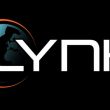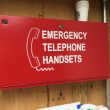Senators propose legislation for unused broadcast spectrum
Two U.S. senators have introduced separate legislative proposals that would earmark unused broadcast spectrum for unlicensed wireless applications, including broadband and home networking.
Both bills are designed to let wireless technologies leverage the valuable airwaves that lay fallow between active broadcast stations in every market in the U.S. Large cities like Boston and Chicago have almost 50 MHz of unused spectrum in this category, while rural areas have hundreds of megahertz in such frequencies.
Senate Commerce Committee Chairman Ted Stevens (R-Alaska) introduced the American Broadband for Communities Act, which would reserve unused broadcast spectrum from 72 MHz to 698 MHz for unlicensed spectrum and require the FCC to establish technical guidelines, according to a Senate source.
“Allowing unlicensed operations in the broadcast band could play a significant role in bringing wireless broadband and home networking to more of our citizens by lowering costs, particularly in my home state of Alaska where connectivity is so important due to the state’s remote location,” Stevens said in a prepared statement.
Sen. George Allen (R-Va.) introduced similar legislation known as the Wireless Innovation Act. The difference between the proposals is that Allen’s bill addresses a spectrum range from 54 MHz to 698 MHz and does not include any mandate for the FCC, the Senate source said.

















